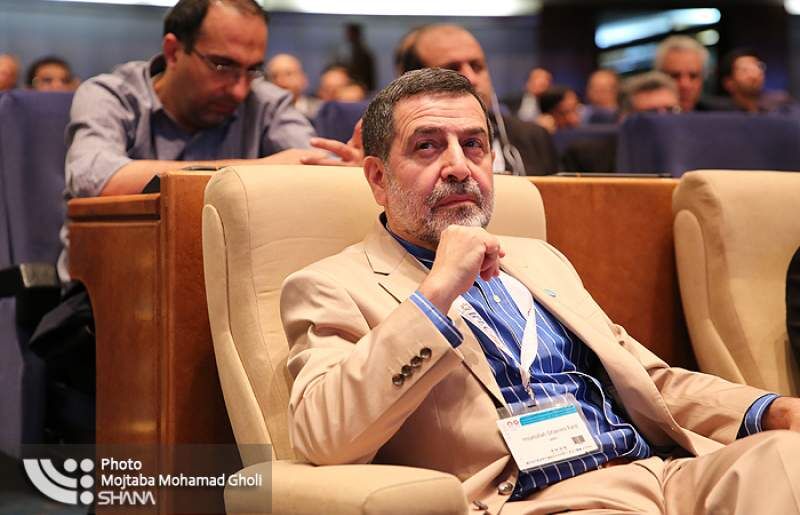In an exclusive interview with Shana, Hojjatullah Ghanimi-Fard said that the demand for crude oil in the European Union has decreased due to tensions between Russia and Ukraine and in China due to several periods of the coronavirus pandemic. “China and India actually imported more oil from Russia after tensions between Russia and Ukraine, and Russia has sent some of its oil to Asia after failing to sell it to certain European countries and the United States.”
Asked which of India and China had the largest share of oil imports from Russia after tensions between Russia and Ukraine, he said: “In terms of percentage, India had more imports from Russia compared to a year earlier, but in terms of the volume of imports, China importers more oil from Russia than other countries like Saudi Arabia. For example, the latest official Chinese statistics for last month (May) show that Russian oil exports to China increased by 55% compared to the same period last year to about 1.98 million barrels per day, but Saudi exports increased by 9% to 1.84 mbd indicating that Russia stands first as the crude oil exporter to China.”
The former adviser to the Secretary-General of the Organization of the Petroleum Exporting Countries (OPEC) noted that based on economic relations in the oil market, if crude oil imports from one country decrease, oil imports from another country or other countries with similar crude oil will increase. “After the collapse of the former Soviet Union, Iran acquired a part of the Eastern European market and replaced Russian crude, but after a few years of being able to increase its production, Russia regained its markets and Iran stepped in other markets.”
Ghanimi-Fard stressed that Iranian oil can be replaced after the lifting of sanctions due to the existing demand in the oil market, adding: "Although in the current situation the demand for oil is not very high and high oil prices are due to psychological factors in the market and concerns about the state of oil supply in the future, delays in a country's production and exports can push oil prices higher than they are now, so more supply can help calm oil prices and prevent a recession in the global economy due to rising prices.”
"Whenever the price of oil jumps in the world without economic growth being a reason and this price jump is not corrected in the short term, demand will decrease due to the reduction of consumption by ordinary consumers and various industries," he said. “With reduced consumption in various industries, economic growth will gradually decline and then the world economy will be accompanied by a recession.”
The former adviser to the Secretary-General of the Organization of the Petroleum Exporting Countries (OPEC) said that the way out of a global economic recession is the full return of Iranian, Venezuelan and Libyan oil to the market. “For example, the return of Iranian oil to the market will reduce prices and prevent a decline in demand, and eliminate the global recession that many predict will occur later this year or early next year.”
"Some news outlets, especially European and American ones, publish news for which there are no official sources, but given the expansion of their coverage, after a while it is induced that such news is real," said Ghanimi-Fard discussing whether Russia’s discounted oil sales had disturbed the market and were a danger for other producers. “I do remember after imposing sanctions on Iran by Trump, Iran was accused of selling short its oil in the market; the country has not since released any data about its oil sales because for good reasons and will not do so, but such news outlets infer that this silences is proof that their assertions are right in this regard.”
He cited the main source of news about the cheap sales of Iranian and Russian oil being some of these news agencies, and added: "I personally do not know whether Russia is giving a surprising discount to its oil customers or not, but in practice it is a fact that if a country sells more oil to another country than before, the buyer will have better conditions, but these more favorable conditions do not necessarily mean that the seller wants to offer surprising discounts.”
The former director of international affairs of the National Iranian Oil Company stated: "Since the news about the discount was published by these news agencies, I will not repeat it. The news must be based on official documents and there are no official documents for the claims of these news agencies, so I want to emphasize that such claims should not be cited as veritable before their veracity is tested.”
Regarding Iran-Russia cooperation under the sanctions, Ghanimi-Fard said: "Iran and Russia, insofar as the two countries do not want to have relations with banks, foreign insurers and transport companies that have imposed sanctions on them, can cooperate in oil and various other economic sectors. The sale of crude oil and petroleum products is also possible as long as the countries purchasing these products do not have problems paying the costs in an international currency or in the sellers' national currency.”
He stressed: "Replacements are natural in the oil market but it is not the case that if a country leaves the market, they can keep it out of the market forever, especially a country like Iran with its high production capacity. It is effective not only in regulating prices but also in ensuring the energy security of the world.”


Your Comment